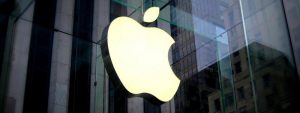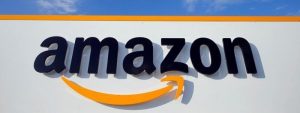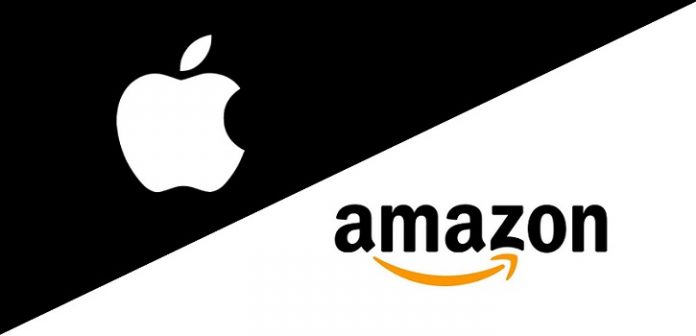Overview
Apple and Amazon are the two tech giants that were poised to hit the $1 trillion mark in market capitalization. This is a new high that indicates monumental investor confidence in the individual companies. Investors base their investment decisions on traits such as innovation, market competitiveness, and sound management. They also take notice of any other positive indicators that may increase investor interest and, ultimately, the value of shares.
Deriving facts from the percentage of S&P 500 YTD returns, the tech companies were prominent on top of the list. For once, financial analysts seem to agree that tech firms’ stocks are bullish. This stems from low fears of a tech bubble or trade wars as demand for tech products is price inelastic. Additionally, Forbes magazine attributes the outstanding performance of these firms to promising long-term business models that many money-minded investors are looking out for. In fact, the 99% of the S&P 500 returns are a result of these tech firms:
- Amazon (35%)
- Netflix (21%)
- Microsoft (15%)
- Apple (12%)
- Alphabet (8%)
- Facebook (8%)
In June 2018, Stock Markets Correspondents Had Different Opinions
Amazon was projected to hit the $1 trillion mark by stock experts not only in the US but in Europe and Asia. During the period, Apple’s market capitalization was at $909 billion compared to Amazon highs of $824 billion.
Most analysts predicted that Amazon would hit the $1 trillion mark first from historical data evidence. From this perspective, the stock value for Amazon had grown by a whopping 58%, giving shareholders a huge dividends payout. Some analysts were positive that the momentum would be carried forward after the release of half-year results. On the other hand, Apple’s share price increased by 13%. By this logic, some analysts were certain that Amazon was ahead on the race to $1 trillion at the time. In a CBS poll, 70% of viewers also expressed optimism that Amazon will lead Apple toward the target.
From another perspective, those convinced of Apple’s primacy were confident that Apple would hit the $1 trillion mark first. This view was likely due to projections circulating in the media about the then-expected sale of 1.3 billion iPhone 7s.
Warren Buffet, through his investment firm Berkshire Hathaway, gave Apple a shot in the arm by approving and endorsing Apple stock. As Buffet is an investments influencer and finance guru, most prospective investors jumped onto the bandwagon. Thus, the media and some stocks analysts gave forecasts of a bullish Apple stock price.
Apple Inc. Broke the $1 Trillion Mark First

At 9:15 a.m. PST on August 2, Apple Inc. became the first US firm to hit the $1 Trillion point. This followed the release of quarterly performance numbers with higher performance and a buying-back of $20 billion of their own shares. This made the Apple Inc. stock jump to $207.05, a 2.8% surge on a single day. This compounded the aggregate gains to 9% following the announcement, hence the breach of the $1 trillion mark.
Taking a wider perspective, the hopeful investors, shareholders and stock analysts can attribute the success of Apple several factors. First, Tim Cook has been overseeing the release of new iPhone models faster that it had been the norm.
Critics, however, accuse Cook of not championing innovation like his predecessor Steve Jobs, under whose tenure consumers were always anticipating new products. This perceived staidness has been slowing down the sales. If things were different, cutting-edge innovation could have led to a surge of market capitalization at over $1 trillion in the first quarter, critics claim.
From a different perspective, investment experts are make predictions in the analysis of AAPL and AMZN stock prices. They believed Apple was correctly valued, and the stock price had a momentum for bullish performance at future and current value on key indicators:
- Cash per share: AMZN $55.46, AAPL $14.69
- Institutional ownership: AMZN 58%, AAPL 62%
- Latest sales growth: AMZN 39.3%, AAPL 17.3%
- Latest earnings growth: AMZN 1,186%, AAPL 32.1%
- Forward P/Es: AMZN 74, AAPL 15
- Trailing P/Es: AMZN 149, AAPL 18
Hence, the reasons for Apple’s stronger performance.
A Month Later, Amazon Breaches the $1 Trillion

On September 4th, Amazon followed Apple to hit $1 Trillion after shares rose to $2,050.49 in mid-day trading sessions. This is a record high of 3,000% value appreciation from the stock value in 2009. Share prices closed the day at $2,039.51, gaining 1.3% for the day and pushing Amazon’s meteoric stock to legendary heights. The closing price, however, falls short of the value required to sustain the $1 trillion market cap.
This has made Jeff Bezos, the Amazon CEO, the richest person on earth at a net worth of $166 billion. Under his stewardship, the company has become a powerful force to be reckoned with. In the sector of e-commerce, the firm has a global share of 50% as per eMarketer data.
The management has diversified Amazon’s line of business to include paid subscription services like Amazon Prime, marketing services, and cloud computing business arms.
Some analysts including Brian Nowak of Morgan Stanley, are confident that the share price will hit $2,500. Nowak points to the profit potential, rapid growth, and business diversification as the source of investors’ confidence.
Nonetheless, allegations of employee under-compensation, especially from the US President Donald Trump and some Democrat politicians, might discourage some institutional investors.
After the 4th of September, Amazon Trails Apple and the Market Cap Has Slid Back to Below $1 Trillion
The race between the tech giants Apple and Amazon has been defined. After Amazon breached the trillion USD dollar mark, Apple was already at $1.1 trillion, about $100 billion ahead of Amazon. The company shed off stock value as they have since lost value to trade at below $2000. Their stock values dropped to $1952 by the close of the week in September 7th.
However, the $178 billion revenues, the $2 billion profit, and the contribution of the non-retail sector are increasing Wall Street enthusiasm in Amazon. It is likely that Amazon would be the main Apple competitor at the S&P 500 in the foreseeable future.
However, Enterprise Value Gives a Clearer Perspective
International media have been breathlessly reporting on Apple and Amazon’s record setting performance. The companies have made strides that few other companies (including PetroChina) have made.
In actual values, Amazon trails Apple as the most valuable company on the metric of enterprise value at $949,693,000,000 versus Apple’s $1,112,493,000,000.
Enterprise value is the correct measure of a company’s value based on its capital structure. This figure takes into account factors such as debt, equity and cash flow instead of stock value. Think of it as the theoretical takeover price for the firms.
Conclusion
In the race to $1 trillion, Apple is the top performer on both the metrics of enterprise value and market capitalization. This indicates that the race has a clear winner and the consumer appetite for iPads and iPhones is outperforming Amazon diversification endeavors.
Disclaimer: All images are copyright to their respective owners and are used by USA Online Casino for informational purposes only.










